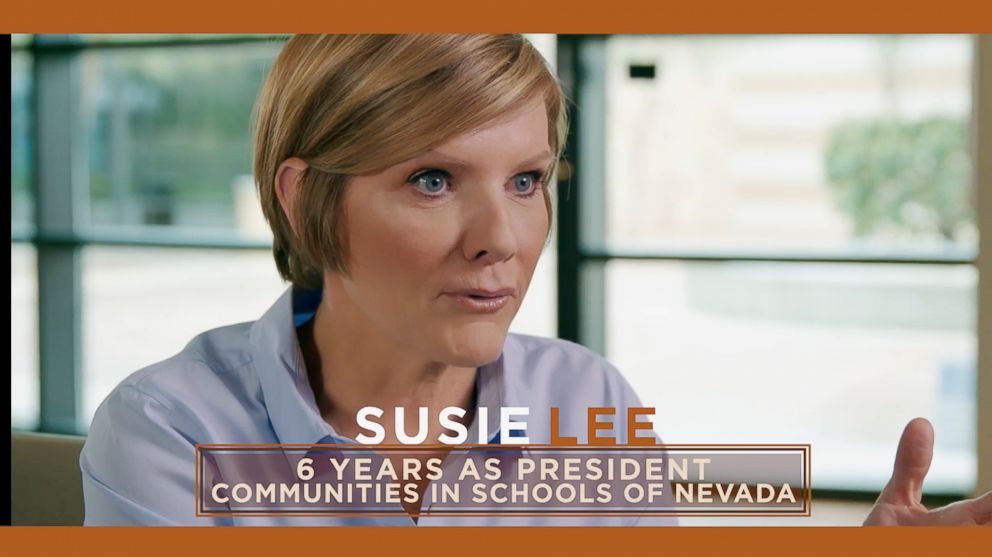From a female James Bond to a nuclear engineer, the women running for Congress are intense
Many of them are new to politics after a wide range of careers and experience.
Even before deciding to run for public office, Abigail Spanberger had to ask her former employer for special permission to declassify her past work.
The CIA, after all, has strict rules about how spies can talk about their clandestine experience on resumes and with civilians after they leave.
Spanberger’s work as a CIA case officer took her around the world. She developed assets and worked with sources, gathering intelligence to fight terrorism and pursue nuclear nonproliferation.
She told ABC News people on the campaign trail have asked her outright if she had been an assassin.
During a during a phone interview last week, she laughed out loud when we asked the obvious follow-up question: “We’re you an assassin?”
“Definitely not,” she said.
Spanberger is running in Virginia’s 7th Congressional District. She faces another Democratic contender in the party’s primary Tuesday.
She is one of a record number of women running for Congress this year, many of them new to politics and bringing with them a wide range of careers and expertise. Like Spanberger, a notable number of women running this cycle have backgrounds in traditionally male-dominated and rather hardcore fields.
“I knew that running for office would be incredibly difficult. You have people hitting you from all sides,” Spanberger said. “With the background that I have, I knew that I could handle that.”
Spanberger is one of at least seven women running for Congress this year who previously worked in the CIA or State Department. Another two dozen female military veterans are running as well.
“When it comes to some of the subconscious biases that people might have about whether a woman is strong enough, knowing that I am former CIA, knowing that I used to carry a weapon every day, that I was law enforcement, that that might mitigate some of those questions of, “Oh can she handle it,” Spanberger told ABC News on the phone.
She has talked with voters about balancing life as a mother and career intelligence officer, often abroad and unable to tell her family her exact location for a few days at a time. “It becomes a shortcut to assuage concerns that people have about women candidates that they don’t seem to have about men candidates,” she said.
According to Rutgers University’s Center for Women and American Politics, an eye-popping 455 women filed to run for Congress this election cycle, far surpassing the previous record set in 2012, when 298 women ran. Five months into this primary season, after 21 states have voted, 116 women have won their primaries and will be on general election ballots in the fall.
Currently, 107 women serve in the House and Senate and make up 20 percent of the total members of the U.S. Congress.

“I think ideally Congress should be a reflection of our country,” Elaine Luria told ABC news on the phone.
Luria is running for Congress in a Virginia district just an hour away from Spanberger.
She served 30 years in uniform, mostly forward-deployed at sea as a Navy commander and nuclear engineer.
“I think when Congress matches the way rest of our country looks, we will get closer to meeting the needs of all the people around the country,” Luria went on.
“Having served in the military, and in a lot of cases have been the only woman or the most senior woman … I know what a difference it makes the more women you have at the table,” she said during the interview. “I can definitely speak from my own experience in a very male-dominated profession that bringing more women into an organization broadens perspectives and makes it a stronger organization. And the same thing goes for diversity.”
While deployed to the Middle East on the USS Enterprise, Luria oversaw eight nuclear reactors and was responsible for training all 700 nuclear operators onboard. She ended her career with a job very women have had in the military: commanding a combat-ready unit of 400 sailors.
At the Naval Academy, Luria was a classmate of Amy McGrath.
Last month, McGrath, a retired Marine Corps captain and fighter pilot, made headlines when she beat a well-known and well-liked former mayor of Lexington in her Democratic Party congressional primary in Kentucky.
“It is really exciting to see so many women run. As women candidates it has been a great opportunity for women to support other women,” Luria told ABC News.
Luria pointed out, however, that not all female candidates seeking public office this year have military or intelligence backgrounds.

Susie Lee, for example, is on the ballot in Tuesday's primaries in Nevada.
Lee is an education nonprofit director, who previously worked to build after-school programs and fight high school drop-out rates.
In Iowa last week, Cindy Axne, a small business owner with experience in nonprofit development and community activism, sailed through her Democratic primary. That state currently has an all-male delegation in the House of Representatives but will have two female Democratic candidates on the ballot in November.
In Illinois, Lauren Underwood, a nurse and former health care advocate under President Barack Obama, beat five other men in a crowded Democratic primary in March.
The strength and success of female candidates was perhaps best on display this spring and summer in Pennsylvania. The state is currently the largest one without any female representatives in Washington, D.C., but in the fall, seven women will be on the ballot in congressional races having all won their primaries.
While Democratic female candidates outnumber Republican ones by more than three to one, according to Rutgers University’s Center for Women and American Politics, several Republican candidates also have military or intelligence experience.
In North Dakota, for example, Tiffany Abentroth, is a decorated Marine, who served multiple tours in Iraq and Afghanistan.
North Dakota’s primaries are also Tuesday.




